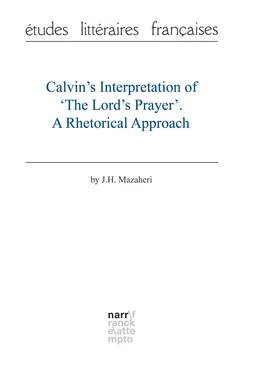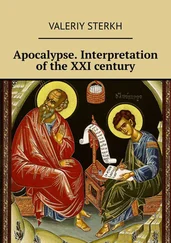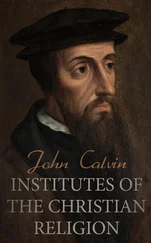Comme on voit en l’exemple de Moyse et de sainct Paul, ausquels il n’a point fait mal, en destournant leur affection d’eux-mesmes, de désirer par un zèle véhément et enflambé leur perdition, afin que mesmes avec leur dommage, si besoin estoit, la gloire de Dieu fust exaltée et son règne multiplié (Ex. 32, 32; Rom. 9, 3). D’autrepart quand nous demandons nostre pain quotidien nous estre donné, combien que nous demandions chose concernante nous et nostre profit, toutesfois nous devons premièrement en cela chercher la gloire de Dieu, tellement que si cela ne devoit tourner à icelle gloire, nous n’en voulussions faire requeste, ne le désirer ou vouloir avoir . ( Institution III, xx, 35, 378–79)7
I assume that Augustine and Luther would have agreed with Calvin, but the fact is that they did not so much think of stressing the “glory of God” as the French Reformer did, since they did not mention it as he did with regard to the last petitions. Calvin, here, is closer to Bucer than he is to Luther.8 Now, let us quickly examine his biblical references on this issue. The one from the Old Testament refers to the episode of the Golden Calf, “When the people saw that Moses delayed to come from the mountain” (Exodus 32:1), where he had received from God the two “Tablets of the Covenant” (Exodus 31:18), and asked Aaron to “make gods” for them (Exodus 32: 1–24). Then Moses, after having ordered his faithful followers, i.e. “all the sons of Levi,” to punish the sinners—thousands of their own relatives and friends—by killing them, and doing this in the name of God, in other words for the “glory of God” and without caring about people’s lives, he “returned to the Lord and said, ‘Alas, this people has sinned a great sin; they made for themselves gods of gold. But now if you will only forgive their sin— but if not, blot me out of the book that you have written ” (Exodus 32: 31–32). He could have said, “Thy Will be done,” because “His glory” matters more than anything else, much more than his own life—“if not blot me out of your Book” has no other meaning. It is also more important than that of his fellow humans. That is why he commanded, as the leader of his people, that the Golden Calf worshippers be killed by the Lord’s followers.
Calvin’s other reference is to Paul. The latter writes to the Romans about God’s “Election of Israel”: “I am speaking the truth in Christ—I am not lying; my conscience confirms it by the Holy Spirit—I have great sorrow and unceasing anguish in my heart. For I could wish that I myself were accursed and cut off from Christ for the sake of my own people , my kindred according to the flesh…” (Rom 9:1–3). We see that not even his own life, but only God’s glory is important to him, that which is also revealed through his “true” children—for “not all of Abraham’s children are his true descendants” (Rom 9:7), and “it is not the children of the flesh who are the children of God, but the children of the promise are counted as descendants” (Rom 9:8). The love of Christ is then everything, says Paul, and one’s life, including his own, is worth nothing. We must go back to the previous chapter to fully understand this passage about the Glory. There we read the following:
I consider that the sufferings of this present time are not worth comparing with the glory about to be revealed to us. For the creation waits with eager longing for the revealing of the children of God; for the creation was subjected to futility, not of its own will but by the will of the one who subjected it, in hope that the creation itself will be set free from its bondage to decay and will obtain the freedom of the glory of the children of God. (Rom 8:18–21)
The life after this one is what we have to consider. We live this one according to the other. Therefore, the “glory” of God alone remains as the common denominator throughout the Lord’s Prayer. We must die to this world and not think of anything else. Calvin mainly remains faithful to Paul’s theology. He greatly respects Augustine and Paul, but his main teacher is Paul.
I. The address to the Father: “Our Father in Heaven”
The Lord’s Prayer starts by the address to the Father. 1 I am examining Calvin’s interpretation in the Institutes and compare it with that of Augustine in De Sermone Domini in Monte ….
Pages 379 to 384 in Benoît’s edition (based on the 1560’s edition, which is the last one) are on “Nostre Père qui es ès cieux.” Four paragraphs (numbers 36–39) are on the first part of the clause (“Nostre Père”), and one (number 40) is on the second part (“qui es ès cieux”.) Augustine’s commentary, on the other hand, is much shorter. He, too, divides the address to the Father into two parts, but the first one (Book II, Chapter IV: 15–16) is barely longer than the second (Book II, Chapter V: 17–18.) This fact may already suggest the idea that Calvin attaches more importance to the term Father than to “Heavens,” whereas Augustine devotes the same amount of exegesis to each part.2
I. Our Father
I.1. Praying in the name of Christ
Calvin starts (nº 36) by reminding the reader of the necessity to pray in the name of Jesus. Any prayer addressed to God should be done in this way, he insists: “il faut que toutes noz oraisons soyent de nous présentées à Dieu au Nom de Iesus Christ” ( Institution 379). If we call our Creator our Father, Calvin says, it is because of Jesus, His only son, by whose grace we are the Father’s children, provided that we believe in Him: “si en certaine foy nous acceptons celle grande beneficence” ( Institution 379). This idea is based on John 1:12, which says:“But to all who received him, who believed in his name, he gave power to become children of God…”. He also ends his exposition in The Harmony of the Gospels by stressing the fundamental role of the “Mediator”: “… nous recueillons d’ici qu’il n’y a point d’autre maniere de bien prier, sinon quand nous venons à Dieu sous l’aveu et appuy du Mediateur” ( Concordance 125). Augustine, on the other hand, only writes: “But now we have to consider what things we are taught to pray for by Him through whom we both learn what we are to pray for, and obtain what we pray for” (Augustine 38).1
I.2. The Father’s Kindness
Dont il s’appelle nostre Père, et veut estre de nous ainsi appellé, nous délivrant de toute deffiance par la grande douceur qui est comprinse en ce Nom. Car il ne se peut trouver nulle telle affection d’amour que d’amour paternelle. ( Institution 379)
The expressions, “grande douceur,” “affection d’amour,” “amour paternelle,” followed by “sa charité infinie,” “son amour plus grande envers nous que toute celle des pères terriens envers leurs enfants,” and “en toute bonté et miséricorde” ( Institution 379), all emphasize the notion of love whose ultimate expression is God. Furthermore, to be realistic with regard to humans, Calvin indicates the fact that some earthly fathers do not have much love for their children, and some are even capable of abandoning them, but we can always count on God’s unfailing love, “Car nous avons sa promesse, laquelle il nous a donnée par son Fils, nostre rédempteur” ( Institution 379). The heavenly Father is again mentioned along with the Son. Calvin wants us to constantly think of the Father and the Son at the same time. The third part of the Godhead, however, is not mentioned.
Augustine’s exposition of God’s Fatherly love is much shorter than Calvin’s. Three points may be noted in this part of his exegesis:
Читать дальше












